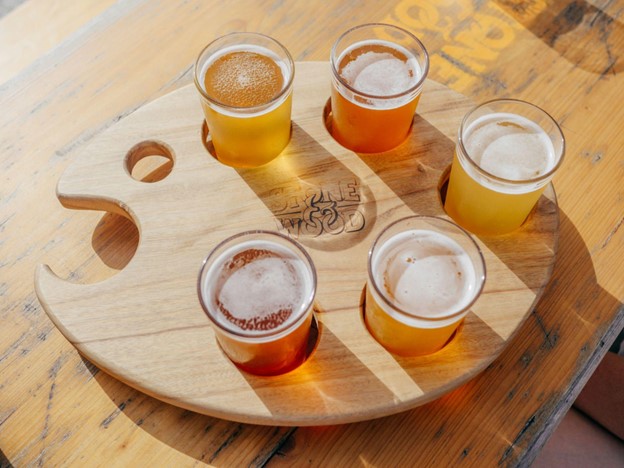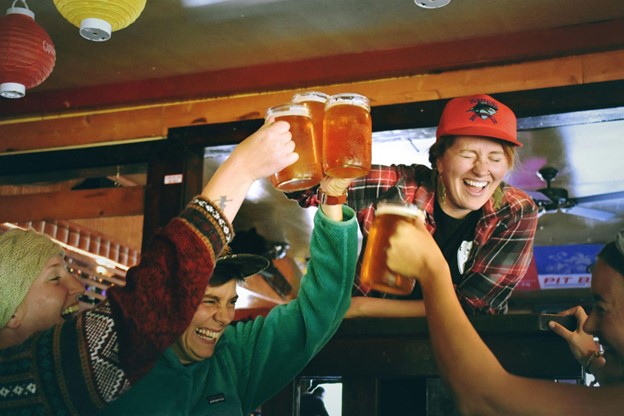Host Your Own Beer Trivia Night: Tips for Questions, Themes, and Fun Challenges

Think you know your hops from your malts? Ready to test if your friends can tell the difference between a pilsner and a porter—beyond just how it tastes? Hosting a beer trivia night is the perfect way to mix a little learning with a lot of laughs. It’s not just about showing off who’s the beer expert (though bragging rights are always fun).
Much like strategy-based games where players try their luck while learning the ropes—think of the excitement of mastering a fast-paced game like jetx register—beer trivia combines skill, chance, and knowledge in a fun, social setting. It’s about sparking conversations, diving into the rich history and quirky facts of beer culture, and, most importantly, having a great time together.
Prepare the Basics
Start by deciding on the format. A structured trivia night usually works best when broken into several rounds with distinct themes. For instance, one round could cover beer basics like ingredients and brewing techniques, while another could explore quirky beer facts or historical milestones.
Decide on the Format
A structured format keeps trivia moving smoothly. Break it into 3–5 rounds, each with a specific theme. A good length is about 8–10 questions per round. Too many, and players lose interest. Too few, and the game feels incomplete.
Gather Supplies
You don’t need much to host a trivia night:
- Answer sheets or notebooks
- Pens or pencils
- Score tracker (a whiteboard, spreadsheet, or even paper works)
- Timer (phone or stopwatch)
Set up a comfortable space. Tables for teams, a seating area, and good lighting are all you need. Avoid loud background music—it makes it hard for people to hear questions.
Designing Your Trivia Questions
The heart of any trivia night is the questions. Aim for a mix of difficulty levels to keep it interesting. While some questions should be straightforward to boost confidence, others can challenge players who know their stuff. For example:
- What are the four primary ingredients in beer? (Answer: Water, hops, malt, yeast)
- Which country has the oldest beer purity law? (Answer: Germany)
- Name the chemical process that turns sugars into alcohol during brewing. (Answer: Fermentation)
Keeping the Energy High
A trivia night’s success hinges on pacing. Start each round with an easy question to warm up the crowd, then gradually increase the difficulty. Announce the scores at the end of each round to build excitement and keep the competition lively.
To prevent fatigue, introduce short breaks or small challenges between rounds. A quick taste-test challenge, for example, can break up the routine. Pour small samples of beer and ask participants to guess the style or main flavor note. It’s a hands-on activity that keeps people engaged while reinforcing the theme.
Another idea is to include fun, lighthearted elements like trivia about strange beer laws or unusual brewing techniques. For instance, you could ask, “Which U.S. state prohibits serving beer and pretzels at the same time?” (Answer: North Dakota). Questions like these spark curiosity and discussion, even if players don’t know the answers.
Creating a Fair and Fun Experience

Fairness is critical in trivia, especially when the competition heats up. Keep the scoring system straightforward: award one point for each correct answer, with occasional bonus points for particularly tough questions or successful challenges. For tiebreakers, have a few numerical questions ready, such as, “What year was the first Oktoberfest held?” The closest guess wins.
Encouraging participation is just as important as maintaining fairness. Some players might not know much about beer, but they can still contribute to team discussions or come up with creative guesses. Celebrate clever or humorous answers when they arise. If someone guesses that hops are “magic beans,” have a laugh and keep the mood light.
Running a Smooth Game
Preparation pays off when it’s time to start the game. Read questions clearly, allow teams a set amount of time to discuss and write down their answers, and stick to the schedule. A good trivia night usually lasts around 90 minutes to two hours, including breaks and challenges. Longer than that, and you risk losing the crowd’s attention.
A little improvisation can also go a long way. If a particular question sparks an unexpected discussion or joke, let it happen—it adds to the camaraderie of the evening. However, always steer the game back on track to ensure it finishes at a reasonable time.
In addition to determining the theme of the Trivia Night, the items needed, and the setup of the questions, the atmosphere of the Trivia Night will be taken to the next level if there is a special surprise prize.
Custom Enamel Pins are a suitable choice. The pins can be designed with the Trivia Night theme, beer-related elements, or the word King of Beers. Similarly, the pins can also have the name of the bar added to them. At the end of the game, the winner receives a custom enamel pin with a personalized touch, which also symbolizes everyone who loves beer and is up for a challenge.

